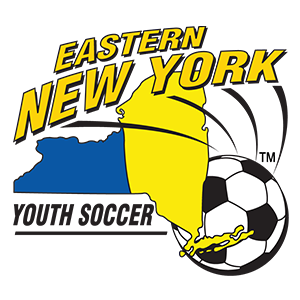OVERPLAYING, REST AND THE AMERICAN PROBLEM
I must admit that I was a little shocked when I first heard Sam Snow talk about the American problem. As Sam continued the lecture on Jean Piaget which is part of the National Youth License it became clear to me that the statement was not an attack rather a very honest comment on what Piaget perceived as a real issue.
At the heart of the "American Problem" as defined by Piaget is the belief that we feel we can accelerate through a cognitive, physical and social development that is a natural process which takes years. In pure soccer terms it is like saying the 5 year olds can play the 11v11 game, lunacy at best.
I think we have another American problem that I wish to address in this article. For the sake of this discussion I will use the phrase unrealistic expectations.( It was the most sensitive I could come up with).
As I have discussed in earlier articles we have unrealistic and ridiculous ideas about what the human body can do. Whether it be the 12 year old who runs from a Soccer game, to a Lax game, to a Basket ball game in the same day; with a granola bar in the car to sustain them or a High School player who practices for seven days with no rest. We need to wake up.
During the "E" license we spend time as instructors introducing the concept of PERIODIZATION. This idea is about planning and at the E level we help candidates understand the cycle of planning a week. How they should structure practices, so that by game time maximum effort and performance can be assured. Even at the E level we discuss how difficult this weekly planning is, when the player may be involved in three competitive sports, all with different game days, and therefore training peaks and troughs.
I have managed to crystallize my thoughts on this and now realize that we need to talk about the importance of rest and that every parent of a competitive athlete needs to come up with their own cycle for a year. All to often coaches either do not get it or turn a blind eye. I have been amazed and disturbed this summer when players have shared with me their summer High School training schedules. The SAS must be in town, with 3 mile 6:15 am runs and two games a week and then of course their youth teams playing in four college showcases during the same time period. All this in preparation for September when they will practice 5 days a week and play games for a minimum of 7 weeks.
I asked a group of 17 year old boys the most days rest they had in the time period September 1 through to the following June 20. In a ten month period the most days rest ( not injury induced was 3). The boys play on a highly competitive youth team and all played High School soccer.
Outside of the High School craziness and to all the ADs reading this, I thought we had rules to protect the players, there is an ever increasing group of youth trainers who love to go to 5/6/7/8 tournaments a summer. (Of course they do they get paid for each one.)
Tournaments were once an opportunity for high level teams to be able to compete against each other. An opportunity that League Play could not provide. The game has evolved and there are a large number of premier leagues that teams can enter ( more lunacy as many of these play 2 games a day) to play in highly competitive games in a league basis. Tournaments are highly profitable ventures that place players in unrealistic and perhaps dangerous environments where they play to many games in a ridiculously short window of time. There is a reason why the rest of the world play 1 game a day or at the most 2 games in three days and it is not that they don’t enjoy playing.
I implore all coaches reading this to try to do the following
1. Ensure that all your players get at least 4 weeks rest a year. Yes they can swim and jog on their own if they want to. But insist on 4 weeks at least with no formal coaching.
2. Research and understand the importance of rest. Their bodies need time to recharge so they can fulfil their potential.
3. Go to one less tournament next year.
I further believe that all parents of competitive athletes need to take out a calendar and plan with your child how much quality rest they can get and when it will be. Once your plan is made try and adhere to it without reservation.
Tim Bradbury
Director of Coaching Instruction

